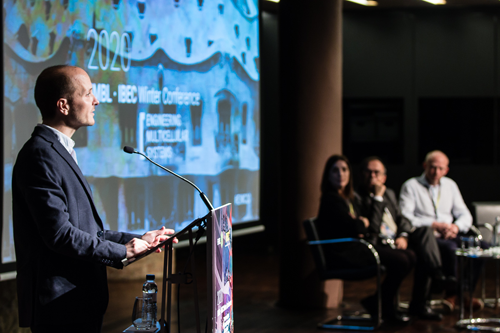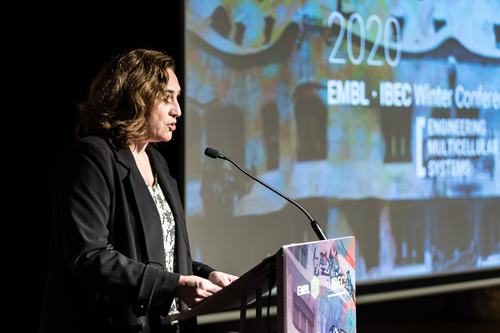During the “EMBL-IBEC Winter Conference on Engineering Multicellular Systems”, which focused on the medicine of the future, the latest advances in emerging fields of bioengineering were addressed; such as the generation of cellular models to study human embryogenesis, biological robots or the derivation of organoids for precision medicine applications, as well as the ethical dimension of these advances and their social impact.

Few areas of research are capable of having such an impact on medicine of the future like that of bioengineering. Recent advances in this field have been key in the design and development of technologies such as organs-on-a-chip, organoids (three-dimensional cultures that simulate the architecture and function of our organs), and other cellular models that capture the early stages of human embryo formation. These approaches help researchers understand the functioning of our tissues, while also posing questions related to human diseases and aging. Another of the key aspects of bioengineering is the identification of possible ethical risks and the social impact of these new technologies on the medicine of the future.
The conference counted with the participation of 20 invited experts from the bioengineering field, among which we can highlight the presence of Professor Magdalena Zernicka-Goetz (Caltech, USA), one of the world leaders in embryonic development; Professor Roger Kamm (MIT, USA), pioneer in technological developments in organ-on-a-chip; Danijela Vignjevic (Institut Curie, France), expert in the derivation of organoids; and Wei Sun (Tsinghua University, China), one of the leaders in bioprinting and the generation of artificial tissue for biomedical applications. In order to address the ethical and social dimension of these issues, the conference counted with the intervention by Dr Insoo Hyun (Harvard, USA), world expert in the area of stem cell, embryo and chimera ethics.
In her speech, Ada Colau stressed the need to increase public spending for research to address the opportunities posed by scientific and technological advances in fields such as bioengineering. In addition, coinciding with the International Day of Women and Girls in Science, celebrated on February 11, the mayor called for the elimination of socio-cultural barriers that make it difficult for women to establish a career in science and defended the need for there to be more women and young people in the world of science.

The conference stems from a collaboration agreement between the European Molecular Biology Laboratory (EMBL) and the Institute for Bioengineering of Catalonia (IBEC) and was led by researchers Xavier Trepat, Núria Montserrat and Josep Samitier from IBEC, and James Sharpe, Miki Ebisuya and Vikas Trivedi from EMBL Barcelona. Both institutions conduct excellent and responsible research, developing precision medicine technology and essential knowledge for improving people’s health.
You can download the press dossier here





